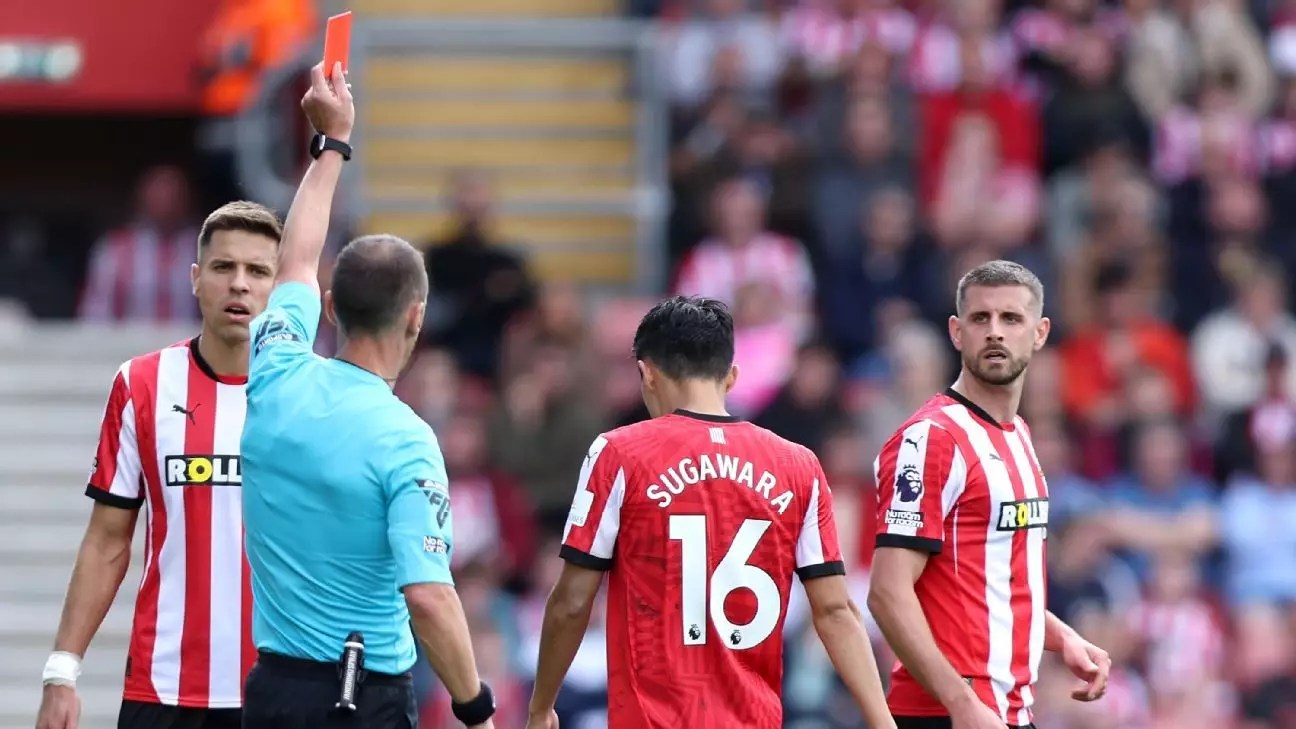Football, a sport revered for its passion and competitive spirit, often serves as a double-edged sword where emotions can lead to regrettable decisions. The recent disciplinary actions taken against Southampton’s captain, Jack Stephens, exemplify the dire repercussions of misconduct on the pitch. Stephens was fined £50,000 and handed a two-game ban by the English Football Association (FA) for using abusive language towards match officials during a Premier League match against Manchester United. This incident, stemming from a red card issued for a high challenge on Alejandro Garnacho, highlights not only the consequences of poor behavior but also the larger conversation about the responsibilities entrusted to team leaders.
In a match on September 14, Southampton suffered a disappointing 3-0 defeat. However, the game was overshadowed by Stephens’ inappropriate conduct, which drew the ire of the officials and resulted in an extraordinary incident report. During the 79th minute, the 30-year-old defender confronted referee Stuart Attwell and fourth official Gavin Ward, leading to his ejection from the game. The aftermath of such a heated exchange afforded the FA a critical opportunity to reinforce the standards expected from players, particularly those in leadership roles.
Acknowledging his missteps, Stephens appeared before an independent Regulatory Commission, taking responsibility for his actions. He expressed profound regret for his choice of words, recognizing the importance of his role as captain and the influence he wields on younger players. This heartfelt apology not only showcases Stephens’ understanding of consequences but also his awareness of the ethical obligations that accompany being a team leader. “I am very embarrassed by my behaviour, and I want to apologise sincerely,” he stated, emphasizing that what he said was unacceptable and out of character.
The ramifications of Stephens’ actions extend beyond personal regret. His two-game suspension means he will miss crucial matches against Arsenal and Leicester City, further aggravating the club’s precarious position in the league, where Southampton currently sits second from bottom with only one point from six games. As the captain, his absence on the pitch during this turbulent time may adversely affect the team’s morale and performance, especially considering the ripple effect that leadership carries within a club.
The incident serves as a poignant reminder for all players, particularly those in senior positions, about the importance of maintaining composure and decorum, regardless of circumstances. The public spotlight on footballers means that their actions are scrutinized and often emulated by fans and aspiring athletes alike. As Stephens returns to the pitch after serving his suspension, his case underscores a crucial lesson in accountability and the ethical implications of sportsmanship. The path to redemption lies in learning from mistakes and recognizing the far-reaching impact one’s actions can have on teammates, the club, and the broader sporting community.


Leave a Reply